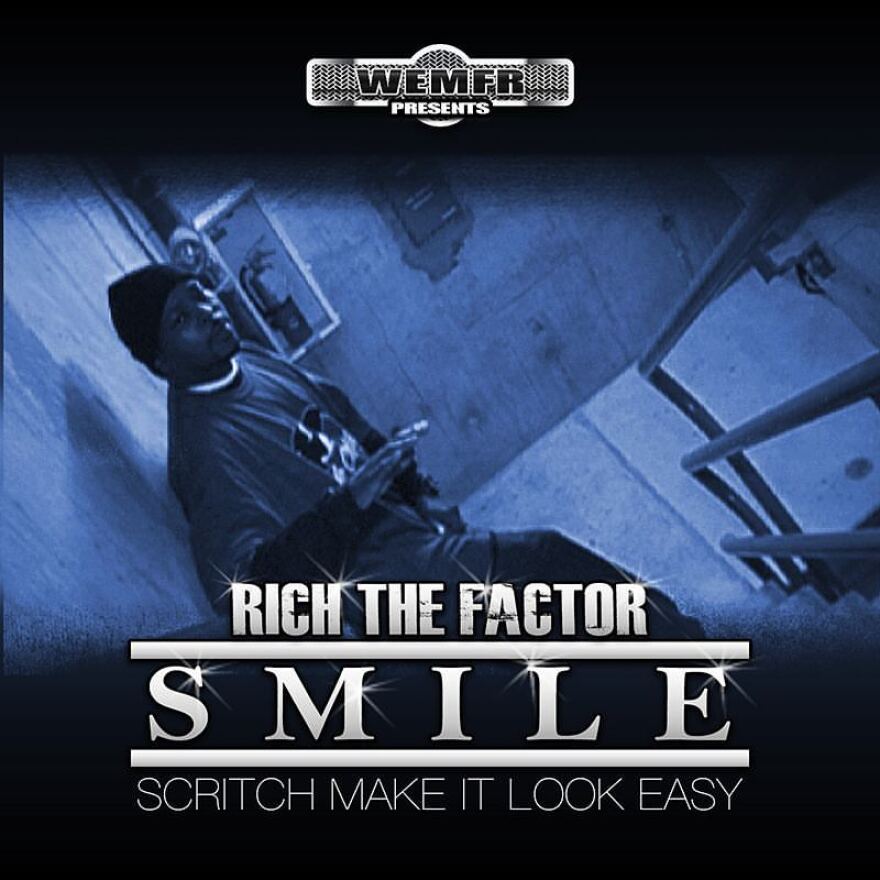Rich the Factor
Smile and Whale Mafi (Major Factor Records)
In the parlance of the street, the Kansas City rapper Rich the Factor has spent most of the past two years on “vacation.”
Since his extended incarceration recently ended, the man born Richard Johnson has been making up for lost time. “I’m fresh up out the pen and I’m back with a vengeance,” he raps on “Blow the Horn,” a combative track on one of his two new albums.
Released in August, Smile and Whale Mafi are rugged records indicating he intends to reclaim his position as Kansas City’s most contentious and prolific rapper.
Since the arrival of his debut mixtape Gettin’ a Grip in 1995, Rich the Factor has provided much of the soundtrack for Kansas City’s criminal underground. His music may not be well known among many people who consider themselves cognoscenti of Kansas City’s music scene, but he’s a veritable legend on the streets of the city’s urban core.
Even at a time when sales of compact discs have fallen precipitously, 7th Heaven still dedicates more than four feet of rack space to his oeuvre. He’s released about 100 titles, and is the top-selling artist in the store’s music department.
Rich the Factor’s appeal is twofold. His sound, an instantly identifiable flow over murky R&B beats, is the sort of bass-heavy hip-hop meant to convey a booming menace. And his lyrics about nefarious activities are fascinating. Rich the Factor isn’t merely a gangster rapper: His songs serve as instruction manuals for breaking the law.

Of the two new records, Smile's funk foundation makes it the more accessible. The gangster boogie of “Certified” is a derivation of the sound Dr. Dre pioneered with N.W.A., a reference point Rich shares with the gritty Bay Area rappers who have an outsize influence among Kansas City hip-hop artists.
“My Team” is based on a sultry slow-jam sample, but Rich’s mean-spirited rap is about the prowess of a drug artisan: “(forget) the living room, spend my time in the kitchen.” He asserts his criminal credentials in several selections, such as on "Push Buttons": "you pussycats just rapping, ain't never touched nothing … I fuck with bosses for real, we really push buttons." He also boasts about his ill-gotten gains on “Bricks ‘Bout 40.”
Rich’s relaxed drawl and agitated lyrics – he often sounds as if his jaw is wired shut as he raps about violence – are even more sinister on Whale Mafi.
On “6 in the Morning,” he offers details about a pre-dawn route southward through the city, “sliding through the 40s picking this cheese up, crossing Brush Creek dropping off in the fifties, stopping (at) Mickey D’s on our way through the sixties.” He’s clearly not delivering newspapers.
Like much of Whale Mafi, “6 in the Morning” sounds as if it emanates from the depths of the ocean. The opaque sonics are one of Rich the Factor’s trademarks. Out of step with the shiny glimmer of radio-oriented hip-hop, his music is deliberately grimy. As he raps on “Street vs. Commercial,” a song title that acts as a motto, he insists that “this shit on purpose.”
Bill Brownlee’s writing appears weekly in The Kansas City Star and Ink magazine. He blogs about Kansas City’s jazz scene at Plastic Sax.




